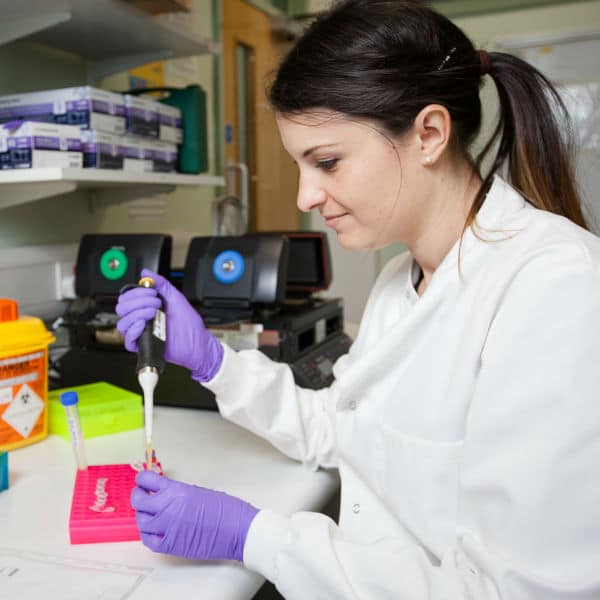Description
During this course, you will learn about the ethical and governance frameworks that govern genomic research, along with a range of research methods and approaches. You will be required to critically appraise information and draw on evidence to justify and defend your judgements. There will also be an opportunity to develop knowledge of how to communicate scientific messages to both scientific and non-scientific audiences, including patients and the public.
Learn from leading experts in genomics about:
- Research methods and approaches.
- Ethical and governance research frameworks.
- Research, audit and innovation processes.
- Data analysis techniques.
- Clinical guidelines.
- Research, audit process and innovation funding.
- Critical appraisal.
- Communication methods.
Learning outcomes
By the end of this module you will be able to:
- Justify current UK ethical and governance frameworks and the processes underpinning the conduct of medical genomic research.
- Compare the difference between audit and research, and the contexts within which each is carried out in the NHS.
- Compare different types of research approaches, including qualitative, quantitative and systematic review.
- Evaluate a range of data analysis techniques to ensure the validity, reliability and appropriateness to the research aim, design and conclusion.
- Evaluate the research and audit process, from idea generation to dissemination/implementation, including patient/user involvement.
- Critically appraise published research papers’ data and analyse statistical tests in relation to research findings and recommendations.
- Evaluate the various methodologies available to communicate scientific messages to different audiences, including patients and the public.












